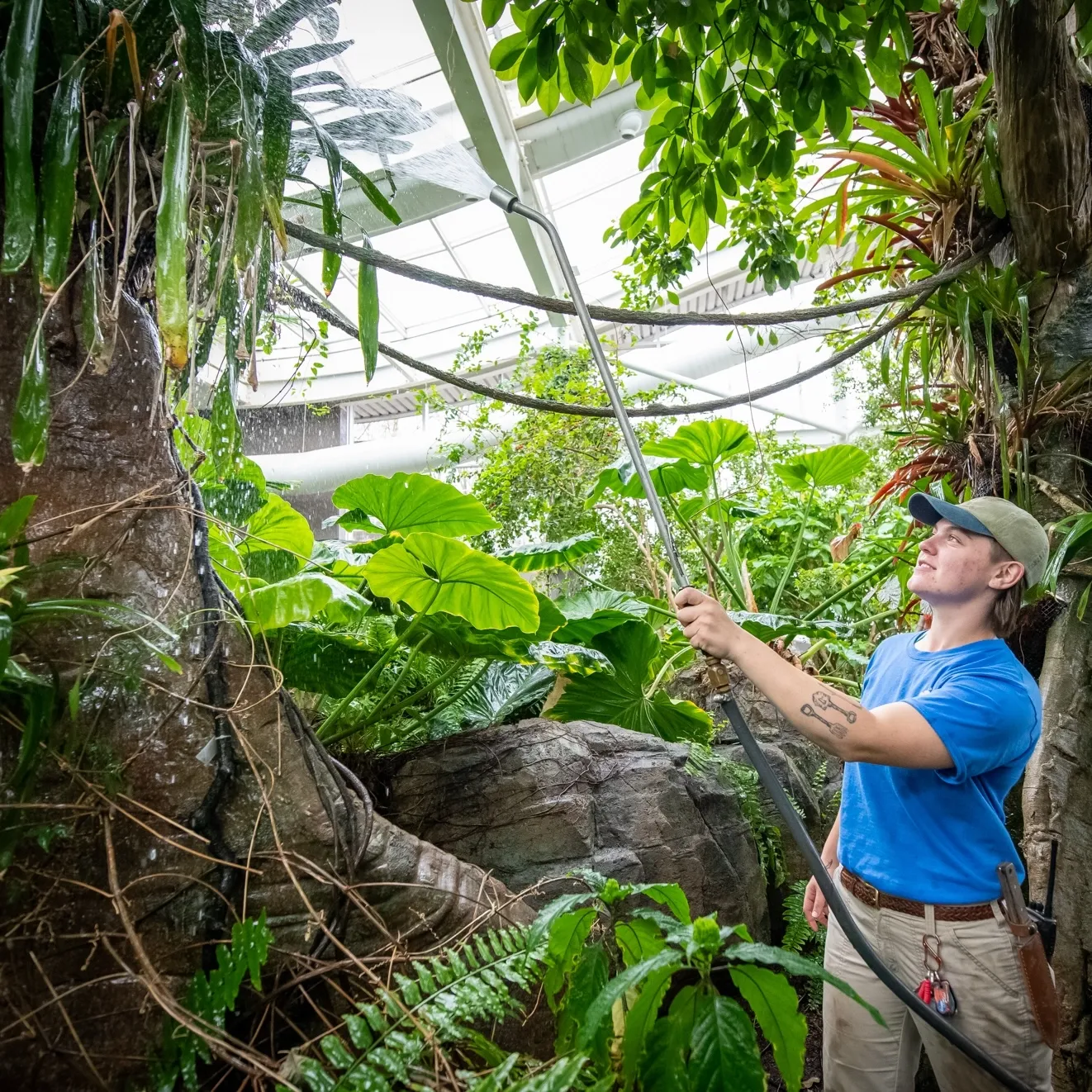What We Can Do Together: Cell Phone Recycling
To aid in conservation efforts, the Pittsburgh Zoo partners with the Gorilla SAFE program, which gathers donations of used cell phones and small electronics to recycle through ECO-CELL. Recycling old phones and other small electronics (with or without their associated cords and cables) like tablets, smart watches, digital cameras, and handheld gaming devices directly raises money through the Gorilla SAFE program for initiatives that help to protect and study gorillas all around the world.
The year-round drop-off box here at the Zoo is located at the bottom of the escalators near the front gate.
Reduce Use of Palm Oil
Palm oil is the most widely used vegetable oil in the world. It can be found in approximately 50% of supermarket products, including baked goods, shampoos, air fresheners, cosmetics, toothpaste, and biodiesel, to name a few.
Every hour, palm oil manufacturers clear a piece of rainforest, jungle, or forest equivalent to 300 football fields. The endangered animals who live in these habitats are often killed during this process, or are left without a home or source of food. Palm oil production also has a major impact on climate change and the overall health of our planet because African palms cannot clean the air or support other life as efficiently as natural foliage.
What You Can Do: Reduce Palm Oil Use
- By limiting your consumption of palm oil, you reduce the demand for the crop, and remaining rainforests and jungles can be preserved.
- If you have to buy products that contain palm oil, look for the Roundtable on Sustainable Palm Oil (RSPO) seal. The RSPO works to make responsible palm oil farming practices the norm, ensuring that wildlife is preserved and people are not harmed in the process of producing palm oil
- Even if a product label does not list palm oil, this controversial product might still be present. Palm oil has over 170 different names, including glyceryl, stearate, stearic acid, vegetable fat, vegetable oil, palmityl alcohol, palmolein, octyl palmitate, and etyl palmitate.
Seafood Watch
The Pittsburgh Zoo & Aquarium partners with the Monterey Bay Aquarium to educate visitors about the importance of maintaining healthy ecosystems. Through the use of a wallet-sized card, visitors determine which seafood choices are best, which require caution, and which should be avoided. We encourage visitors to make the best choices – ones that are well managed or caught and farmed in environmentally friendly ways.
The Water’s Edge exhibit contains the Sound Seafood building where visitors can view a seafood counter and directly note the differences between good and poor choices in regard to fish populations’ health, the ocean’s health, and human health. Visitors can bring a Seafood Watch card with them to actual seafood markets or restaurants to help them make healthy choices for the fish populations and for themselves.
The Zoo also partners with local restaurants and seafood retailers to get them to offer alternatives to seafood that is being overfished or is dangerous for human consumption.

Living Landscapes
Songbird and insect declines are in serious decline in North America. Besides habitat loss, insecticides and other harmful practices (such as night lights) lead to loss of insects, especially caterpillars, that support bird populations. You can take action and help reverse this decline by planting habitat-providing trees, shrubs, and other plants that support insects and birds. These actions can be at any scale you can manage—from a plant pot to your front or backyard.
